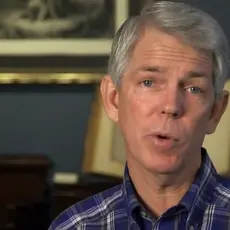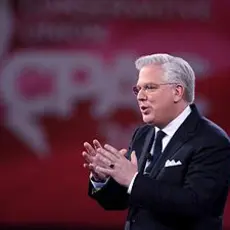Rafael Cruz, father of senator and presidential candidate Ted Cruz, has become a folk hero in his own right among Religious Right activists as he has barnstormed the country railing against Barack Obama, gay rights activists, and other favored enemies of the far right — and promoting his son’s presidential candidacy. Rafael’s new book, “A Time for Action: Empowering the Faithful to Reclaim America,” will be officially released by WND Books in January, but we at RWW have saved you the time, money and aggravation by reading it for you. Happy New Year!
If you’ve watched Rafael Cruz or his son at all, there’s not much new or surprising in Rafael’s book. It is essentially a book-length pitch for his son’s candidacy, beginning with a gushing foreword from Glenn Beck — “Rafael Cruz is one of the greatest freedom fighters of his generation” and “Ted Cruz will do anything to protect and preserve freedom” — to an epilogue from Ted Cruz, which reads like a reprint of his presidential campaign’s stump speech. Rafael says in the book that he has known since Ted was a young boy that he had “a special calling on his life.”
Rafael is not shy in his political pronouncements. The Democratic Party “promotes an ungodly socialist agenda that is destroying America,” he declares. “And unfortunately, there are those in the Republican Party who aren’t much different.” That is why, he says, it is even more important to vote in primary elections than in the general election, because the primary “gives you the opportunity to select the candidates that best align with biblical and constitutional principles.” Rafael, and Ted in his campaign-speech epilogue, repeat their assertion that 54 million evangelical voters stayed home on Election Day 2012 and that getting more of them to vote is the key to putting the government back in the hands of a “righteous” president.
In between Glenn Beck and Ted Cruz, the book is part memoir of Rafael’s possibly embroidered past as a freedom-fighter against Cuban dictator Fulgencio Batista and part evangelical religious tract. This is supplemented by plenty of recycled Christian-nation historical claims made by GOP activist David Barton, the often discredited “historian” who is currently running a pro-Ted Cruz super PAC. Barton and his Christian-nation history are repeatedly cited by Rafael, who writes:
I believe without a shadow of a doubt that the reason the Declaration of Independence and the Constitution of the United States have lasted over two centuries is that they were divinely inspired and then written by men who had spent time on their knees. These were men of God seeking revelation from God, and that’s what He gave them. Of course, these two documents aren’t equivalent to the Word of God, but God certainly directed the men who crafted them.
Also cited in “A Time for Action” is Christian-nation advocate and political strategist David Lane, who is trying to mobilize an army of conservative pastors to run for office, which he hopes will in turn bring out conservative evangelical volunteers and voters. Lane has also been, with FRC’s Tony Perkins, a major promoter of the effort to get Religious Right leaders to unite around a single candidate — a step taken earlier this month when dozens of them voted in a secret endorsement meeting to back Ted Cruz.
Rafael talks about the dangers of secular humanism and makes a glancing reference to Seven Mountains dominionism, the belief that conservative Christians must gain control over the "seven mountains" of American culture.
In no way, shape, or form was Jefferson implying that the church should be restricted from exerting an influence upon society. On the contrary, the Bible tells us that we are the salt of the earth and light of the world…Doesn’t that suggest that our influence should touch every area of society – our families, the media, sports, arts and entertainment, education, business, and government?”
Like Barton and Lane, Rafael makes his case for the Christian nature of the U.S. government by conflating the Pilgrims and Puritans with the founding fathers who gave us the Declaration of Independence and U.S. Constitution more than 150 years later. Rafael declares that “the concept of separation of church and state is found nowhere in either the Declaration of Independence or the Constitution of the United States of America,” which leads into this:
To understand this clearly, we need to go back four centuries to the time of the first settlers in America. If you lived in England in the early 1600s and were not a member of the Church of England, you would be considered a heretic and subject to persecution. So the early settlers immigrated to the New World in order to freely worship the Lord their God. What a remarkable heritage of religious freedom this exceptional country gives us! The only country on the face of the earth founded on the World of God!
As this new constitutional representative republic stretched its wings following the Revolutionary War, citizens of the thirteen colonies wondered if their new government would impose a state religion upon them like the one their forefathers suffered in England…
That is followed by a discussion of Jefferson’s letter to the Danbury Baptists, ending with the Bartonesque conclusion that Jefferson’s wall of separation image “was only referring to a one-way wall.”
Rafael’s writing on Cuba is similarly incomplete. He describes the explosion that sank the U.S. Maine in Havana harbor in 1898 as “an unprovoked attack” without any indication that many historians now believe the ship’s boiler exploded and that the “unprovoked attack” story was simply cover for the U.S. to declare war on Spain and bring Cuba under U.S. control. Rafael suggests without offering any evidence that President Obama’s unsuccessful efforts to close the prison camp at Guantanamo Bay suggest that Obama is “complicit” with Raúl Castro’s demands that the U.S. return the military base itself to Cuban control.
“A Time to Act” includes plenty of familiar Religious Right claims: that Supreme Court rulings on state-sponsored prayer and Bible readings in public schools have contributed to America’s downward slide, along with legal abortion and the “redefinition” of traditional marriage.
The book is also full of the hyperbolic rhetoric you’d expect from Rafael Cruz and World Net Daily, the far-right news outlet that serves as his publisher. Jimmy Carter’s policies were “reminiscent of the bearded dictator I had left behind in Cuba” and Obama taking executive action on immigration in the face of congressional inaction “doesn’t sound much different from the old, bearded dictator I left behind in Cuba almost sixty years ago — governing by decree, by fiat, just like Fidel Castro.”
There’s more: America today “is tragically following the same path that Cuba did a half century ago.” The Obama administration has “intensified our progression into an age of lawlessness.” The Obama administration’s nuclear deal with Iran will make it “quite literally, the world’s leading financier of radical Islamic terrorism.” The Supreme Court’s “lawless” and “preposterous” marriage equality decision is “one of the biggest signs of our country’s moral degradation.” The federal government “mandates that teachers affirm alternative, nonbiblical lifestyles, teach evolution as incontrovertible ‘fact,’ and mock the notion that God created the heavens and earth.” Common Core is a means for educational elites to “brainwash our students through federally mandated curriculum that extols socialism, globalism, and immorality from a secular humanist worldview.”
Like countless speeches at Religious Right political gatherings, Rafael Cruz places much of the blame for America’s sad state of affairs on pastors who aren’t being aggressive enough in preaching politics from the pulpit. “The time has come,” he writes, “for pastors to again fearlessly preach toward the political landscape, just like their predecessors centuries ago. If they don’t, Satan will rule without opposition in our halls of legislation.”
It is interesting to read the extent to which Ted Cruz is a product of careful grooming since childhood by his father and by far-right organizations. Rafael was active in the Religious Roundtable’s efforts to elect Ronald Reagan, and Ted, then nine years old, heard plenty of dinner conversations about the importance of getting rid of Jimmy Carter and replacing him with Ronald Reagan. Says Rafael, “My son received a dose of constitutionally conservative politics from a biblical worldview every day for a year when he was just nine!” As a kid, Rafael’s friends introduced Ted to the founder of the Free Enterprise Institute and began inculcating him in the teachings of people like Milton Friedman, Ludwig von Mises and Friedrich Hayek. Ted was part of a group of five high school students that the Institute sent around Texas giving speeches on free-market economics and the Constitution.
“A Time for Action” also includes a few appendices. One helpfully explains how U.S. government policies — such as progressive income taxes, net neutrality, Amtrak subsidies and the auto industry “bailout” — align with the 10 planks of the Communist Manifesto. Also included, courtesy of David Barton’s Wallbuilders, the letter of the Danbury Baptists to Thomas Jefferson and his response; a sermon preached by colonial pastor Jonas Clark before the battle of Lexington and his account of the battles of Lexington and Concord; and recommended resources, which include Ted Cruz’s “A Time for Truth: Reigniting the Promise of America” as well as books by conservative economists and a few Religious Right organizations, including the Alliance Defending Freedom, David Lane’s American Renewal Project, Wallbuilders, and, of course, WND. Earlier in the book, Cruz promotes other Religious Right groups that produce voter guides or voting records, including Vision America, Liberty Counsel, Liberty Institute, Eagle Forum and Concerned Women for America.









